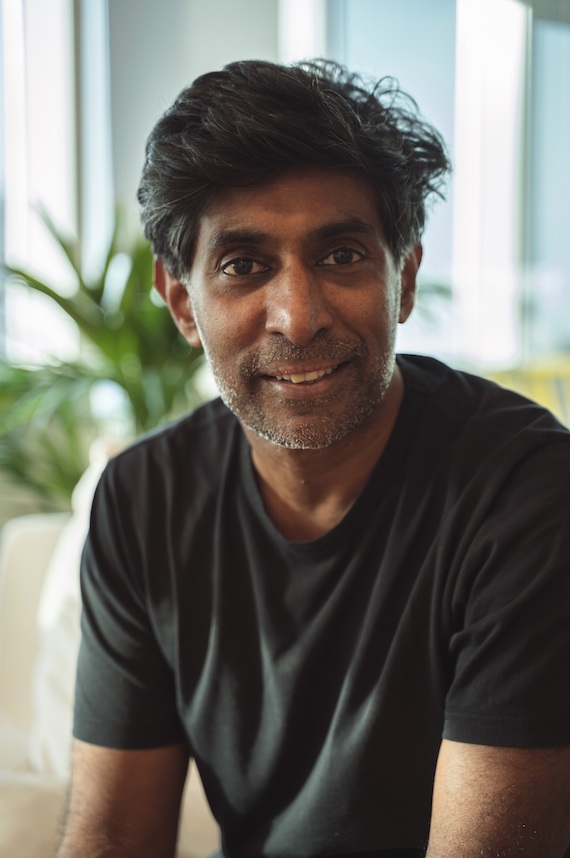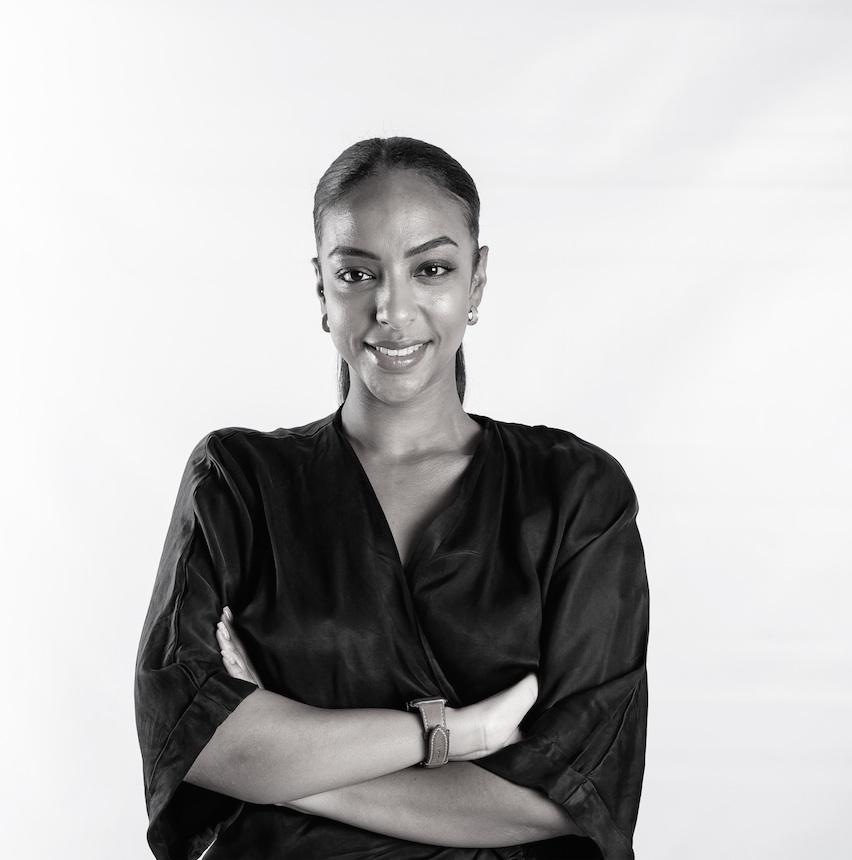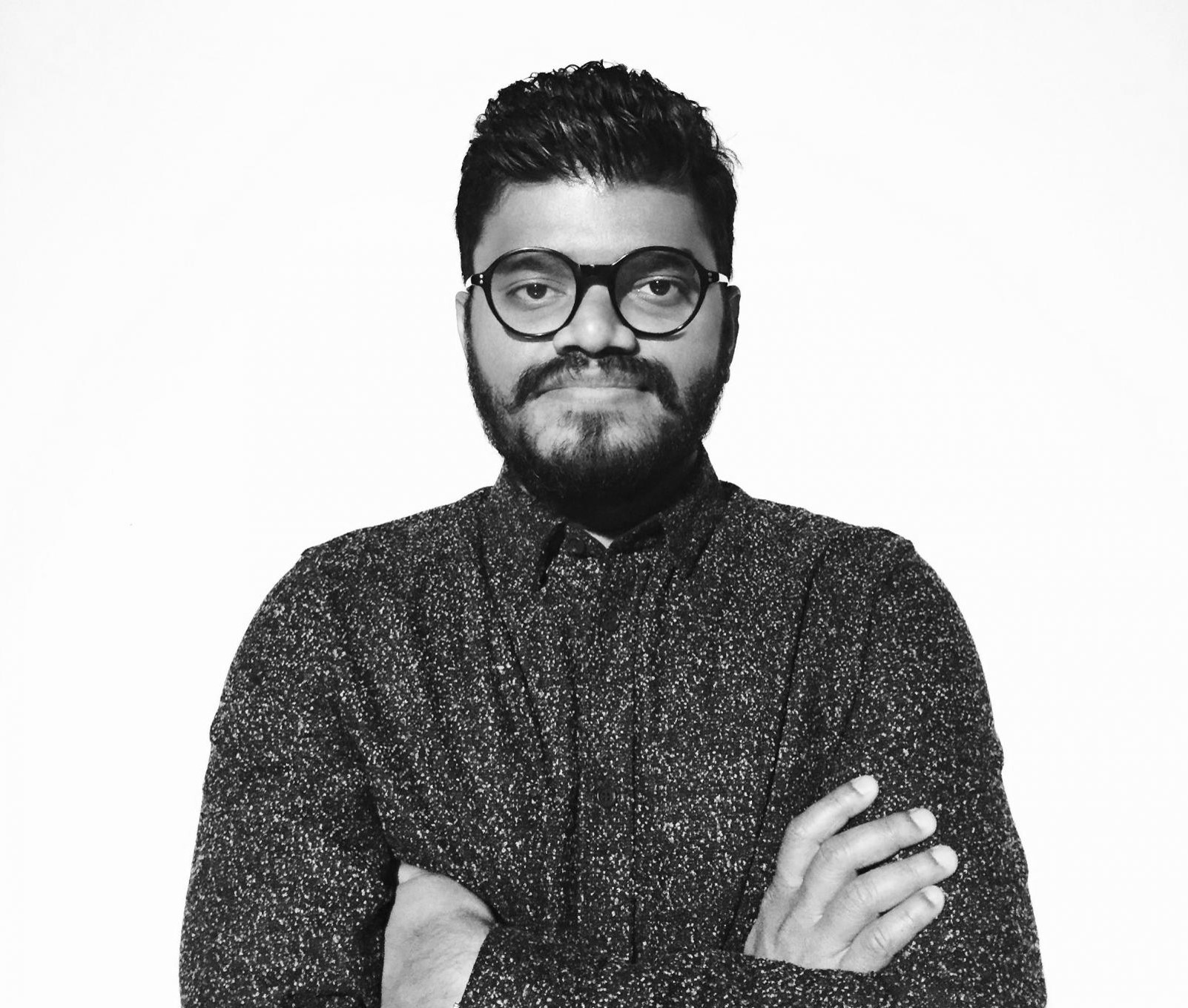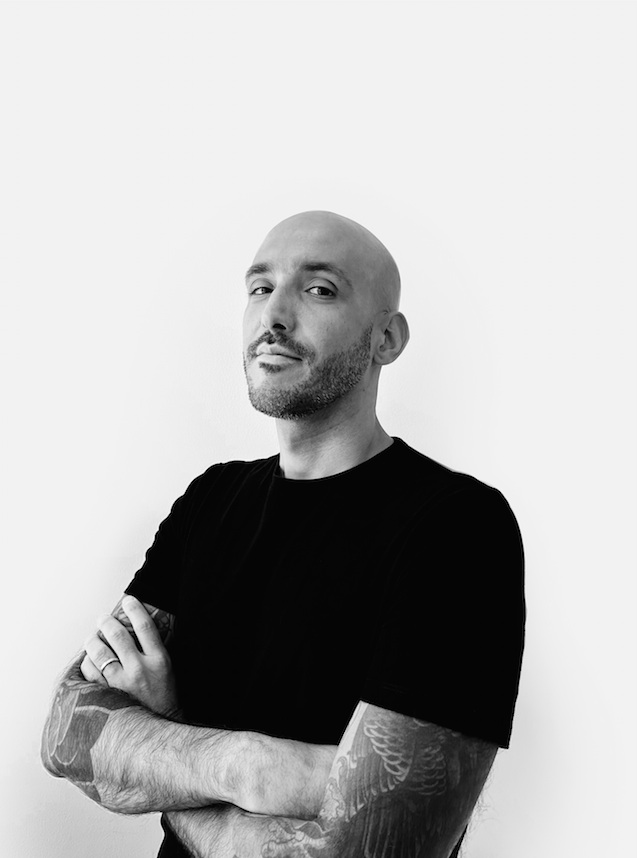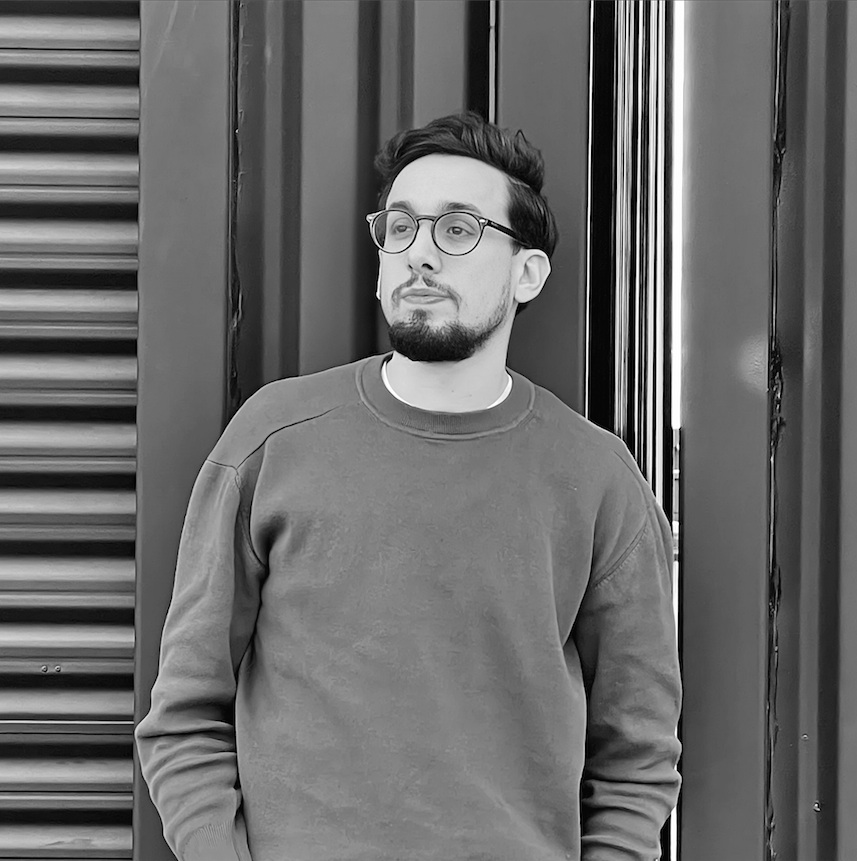Listen to the article
Publicis Groupe may have dominated this year’s Dubai Lynx awards, but the overall quality of the work was encouragingly high. ArabAd takes a look back at the awards.
“This year’s Dubai Lynx was, in many ways, one of the best I have been to,” says Seyoan Vela, chief creative officer of LivingRoom. “The outdoor venue and one day format brought energy to the occasion and allowed the attendees to easily mingle. In previous Lynx, some talks were poorly attended or only attended by forced colleagues. It has often been reduced to being purely about the awards and nominations. This year there seemed like there were a lot more clients, and other parties such as tech platforms in attendance, who seemed to have a genuine interest in more of the talks.”
“This year’s Dubai Lynx was, in many ways, one of the best I have been to.”--Seyoan Vela
The awards may have grabbed the majority of headlines, but this year’s Dubai Lynx was a remarkable success. The new one-day format proved popular, two stages provided global and regional content, and even John Cleese – one sixth of British comedy troupe Monty Python – entertained delegates. There was even a TikTok stand printing ‘am I the drama’ on tote bags.
But it was the work that got everybody excited. Of the 1,862 entries, 404 pieces were shortlisted, while a new creative commerce category was introduced. “The overall quality of the work was fantastic, demonstrating the remarkable craftsmanship, innovative ideas, and outstanding outcomes produced by the region’s creative industry,” say Camila Venegas Gomez, associate creative director, and Silvia Carreño Vera, senior copywriter at M&C Saatchi. Both were thrilled with their own agency’s performance, which reflected “our dedication to pushing boundaries and creating innovative and impactful campaigns”.
“
The overall quality of the work was fantastic, demonstrating the remarkable craftsmanship, innovative ideas, and outstanding outcomes produced by the region’s creative industry.”--Silvia Carreño Vera & Camila Venegas Gomez
The Work
“The overall quality of the work seemed really high this year,” adds Vela. “There were less exceptional pieces, such as a Liquid Billboard or UN Women, but it was refreshing to see so much more winning work that was produced for big brands. And great to see so much more work that was previously known rather than ‘unveiled’ at Lynx.”
Amongst the winners, two favourites stand out. One is Havas Middle East’s ‘The Ravi Superstar’, which landed multiple grands prix, including entertainment and PR. The other is M&C Saatchi’s ‘As Good As The Original’ for Burger King Kuwait, which picked up grands prix in both film and film craft. Special mentions also go to Wunderman Thompson Dubai’s ‘The Unstainable Thobe’ for Heinz, and Hungerstation’s ‘The Subconscious Order’ by Wunderman Thompson Riyadh. The latter was Saudi Arabia’s first ever mobile grand prix.
‘The Ravi Superstar’ campaign was, says Razan Karim, senior communications director at Red Havas Middle East, “a sneaker drop like no other”. Jointly designed by adidas and the family behind iconic Pakistani restaurant Ravi, the collection sat at the “intersection of food, fashion and community”, delivering a campaign that broke the rules of sneaker launches.
“Throughout the entire execution of the project, our aim was to maintain the sense of community and collaboration that lies at the heart of the campaign,” explains Karim. “We hand-picked creative collaborators that are embedded in the fabric of Dubai’s community – from the emerging photographer who shot the campaign images, to the contributors [included in] the book we produced. While the storytelling might have differed from previous work we’ve done with adidas, we maintained the community aspect which is a golden thread that runs through all of our communications campaigns.”
‘As Good As The Original’, meanwhile, introduced Burger King’s new plant-based Whopper with the help of an amusing Cristiano Ronaldo lookalike. “We spent around a month finalising the script and then working closely with the director to take the humour and jokes to the next level,” say Gomez and Vera, who headed up the grand prix-winning team at M&C Saatchi. “In the end, we had 20 to 25 lines that we could use to shift the narrative and would allow us to be flexible during the filming. It was a really fun process, but also a challenging one.” The campaign was shot in Bulgaria across multiple locations and took “just two, but long, days”.
“For us this was personal, every line in the script we know by heart, and every detail seen on the film was studied and discussed multiple times,” add Gomez and Vera. “Our collaborators – Dejavu and Mangojam – became our best allies in the production, editing and sound design. For us this film means that good work can be done right in the region, and it made us more confident about bringing entertaining and innovative concepts to the table. We couldn’t be prouder with the outcome and the relevance of this film globally.”
“Throughout the entire execution of the project, our aim was to maintain the sense of community and collaboration that lies at the heart of the campaign. We hand-picked creative collaborators that are embedded in the fabric of Dubai’s community"--Razan Karim
Agencies of the Year
It was the agency and network of the year titles, however, that took centre stage, producing a clean sweep for a resurgent Publicis Groupe. Leo Burnett was named network of the year, Leo Burnett Dubai won agency of the year, and Starcom took home the media agency of the year title. Prodigious, the group’s creative production studio, was also named production house of the year. How did this happen? The answer lies predominantly in the wider transformation of the Publicis Groupe – a transformation that has been accelerated under the leadership of Bassel Kakish following his appointment as CEO in 2021 (see separate interview). That transformation has seen some of the region’s best talent join the group.
“It’s been only 13 months since we have come together as a new creative team at Leo Burnett,” says Kalpesh Patankar, chief creative officer at Leo Burnett Dubai. “And in that short period, to have become agency of the year was definitely a gratifying moment. Of course, it could not have been possible without our clients, who believed in us and supported our ambitions. This win goes to every single person, right from our senior leadership to the teams that worked tirelessly to make it happen.”
The most remarkable transformation is arguably that of Saatchi & Saatchi. The agency had all but fallen off the map in the past decade and yet, there it was, picking up grands prix left, right and centre. By the end of the evening, it was ranked runner-up in both the network and agency of the year titles.
“It’s been only 13 months since we have come together as a new creative team at Leo Burnett. And in that short period, to have become agency of the year was definitely a gratifying moment."--Kalpesh Patankar
“When things go right, it’s important to appreciate the forces that made the conditions absolutely favourable,” says Sebastien Boutebel, chief creative officer at Saatchi & Saatchi Dubai. “Bassel Kakish’s leadership marked a shift in priorities and focused on investing in the right talent and work. Opportunities with the most potential were identified and made open through a collaborative spirit and a dynamic, modular Groupe ready to rise to any occasion. Our north star was always good work – driven by our belief that nothing is impossible. Good work was built by uncovering the on-point insight and identifying the right balance between purpose and entertainment. This resulted in creativity that captured the audience’s attention and delivered astounding results.”
Publicis Groupe agencies landed 11 grands prix in total (out of a possible 22), including two for Leo Burnett Beirut, which won the grand prix for good for Abaad’s ‘Dirty Laundry’, and one for Publicis Middle East (Jeep’s ‘The Call Of Adventure’). Leo Burnett Dubai picked up four, including the direct grand prix for ‘The Drive Thru School’ for McDonald’s. Saatchi & Saatchi Dubai also won four, landing two for the UAE Government Media Office’s ‘Empty Plates’.
“Bassel Kakish does seem to have done a fantastic job in recruiting great talent to the Publicis Groupe agencies,” says Vela. “There’s always a danger that it could go the way of Real Madrid’s Galácticos but it currently looks like it’s working. Of course, it’s also about investing enough in your entries – having the financial muscle to be in all the right categories – but none of that matters if you haven’t got the work. You need the raw material, and this year they had great work that deserved to win.”
Will this success continue? That’s the million dollar question. For the three previous iterations of the Dubai Lynx, BBDO was both network and agency of the year, only for it to be knocked off its pedestal in March. At two of those awards ceremonies, an Omnicom Media Group company had also picked up the media agency of the year title. If nothing else, the Dubai Lynx has shown us that success is cyclical. How Leo Burnett and Saatchi & Saatchi ensure they continue to create fresh, award-winning work will be critical.
“It’s all about a shared goal with individual accountability,” states Boutebel. “When it comes to creating award-winning work, every department becomes accountable to propel the work forward. Strategic breakthroughs cracked creative ideas, and proactive client management all drive the work that gets rewarded. The support and collaboration of the Groupe to work as one will lead to continued award-winning work. We need to build on past successes by defining and elevating each individual’s commitment to making good work happen.”
“When it comes to creating award-winning work, every department becomes accountable to propel the work forward."--Sebastien Boutebel
Same old, same old
Of course, it wouldn’t be the Dubai Lynx without accusations of plagiarism. One of those allegations was directed (via an anonymous email) towards ‿ And Us. The independent agency of the year’s ‘Sole Music’ for streaming platform Anghami saw the launch of a ‘groundbreaking technology’ that allows deaf people to experience music through the soles of their feet. The accusation being that the idea was nothing new and had, in fact, been developed four years previously by DropLabs, a company that produces audio enabled footwear. The difference being that, whereas DropLabs’ solution was the development of an entire shoe, ‿ And Us had created an insole designed to fit into any shoe. Despite the differences in design and development, Fadi Yaish, the founder of ‿ And Us, declined to comment on the accusation.
At the time of writing this article, the ‘Sole Music’ work has already been saluted at the prestigious One Show Award with the agency scooping four Bronze Pencils and two Merits for it.
It does, however, highlight the continued threat posed to the Dubai Lynx and all other awards shows by alleged ‘copycat’ work. It also raises the question (once again) of where inspiration ends and plagiarism begins. And whether it’s possible for similar ideas to be created independently of each other. “We all need to be mindful of the unfortunate perception that some of the work produced in our region could be deemed ‘copycat’ work,” says Boutebel. “To fight this perception, the jury may have to be tougher on what they judge and more vigilant of ‘up-cycled’ work. By upholding integrity and authenticity, we can ensure that the work being produced truly reflects the innovative minds of our region.”
The old chestnut of campaigns created purely for awards glory also resurfaced. “Some ideas seemed to exist solely for the purpose of winning awards, which is disappointing,” say Gomez and Vera. “As creatives, we have a responsibility to generate ideas that can positively impact the world, and we must ensure that these ideas translate into meaningful outcomes for both brands and the people who benefit from them. Ultimately, advertising should entertain, evoke emotions, and effectively promote a product. We’re glad to see this approach becoming more prevalent in the industry.”
In general, however, Vela believes there “was less scam work this year but there’s still plenty to be suspect of”. For example, “many categories now require results and some of the results were preposterous – a massive sales rise from a filter that appeared on social; campaigns that claim to have resulted in laws being changed; and why Pakistan is in an awards show that is for this region pushes my understanding of geography”. He also believes the Lynx must return to its original premise and open up to the creative community again. “It’s become too expensive and therefore exclusive,” says Vela. “That’s why it’s now populated with clients and staff from the dominant social platforms – exactly like Cannes. There’s nothing wrong with that but agency staff no longer have their own festival to attend and be inspired by.”
Pricing is important. The cost of entering D&AD, arguably the world’s most prestigious awards show, begins at around $50 (even less if you qualify for a discount). The Dubai Lynx, in contrast, begins at $545, rising to as high as $1,095 per entry if you miss the early bird deadlines. So, if an agency enters, let’s say, 100 pieces of work and misses the early bird deadlines, it’s looking at entry fees in excess of $100,000. Not to mention the price of awards night tables and any sponsorship deals. And let’s not forget that it was partly the excessive proliferation of categories and increasing costs that led Publicis Groupe to boycott Cannes in 2018, as well as all other awards shows during a 365-day period.
“Let’s not hide the fact that awards shows are getting bloated and ridiculously expensive,” says Vela. “Across the world their credibility is being questioned – and not just in advertising. Award shows are now better understood as being an industry in themselves. It’s a lot of money to blow if you haven’t got the work and you have other priorities. Also, for the big network agencies in this region, Dubai Lynx feels like it has been reduced to ‘agency of the year’ and ‘network of the year’ more than a celebration of individual campaigns. The unintended consequence is that I’m sure lots of agencies dial down their participation if they don’t think they have any chance of those top prizes.” Maybe this is one of the reasons why there were some noticeable absentees at this year’s Lynx, including TBWA\Raad.
"Winning prestigious awards is undoubtedly a testament to our hard work, but it should never be the sole objective."--Firas Ghannam
The Future
Where does the industry need to improve in terms of the work? What challenges does it face in doing so? Should the industry come together more often, as Patankar believes, and “collectively represent the region on an international stage”?
Whatever the answers, Vela believes there was a big step up this year. “The industry just needs to keep showing it can make work that makes a commercial difference to brands and clients,” he says. “That even if it’s not award winning, it is populist and continues to raise the bar in the region. These are challenging times for the industry as a whole and until AI does the creative thinking, someone still has to – and that someone is still agencies.”
Boutebel highlights two ingredients that he believes need to be re-prioritised in the region: craft and humour. “We need to bring back the art of the craft, not just for the agency’s sake but for the client’s sake,” he insists. “A campaign can be even more effective when it’s beautifully crafted and serves a longer culture-creating purpose in the region and world. And there’s been strong global lobbying to bring humour back into the industry. Again, it’s all about balancing humour with purpose. In light of the economic climate… it’s not only about showing real purpose from brands (walking the talk), which will always be important. People also just want to feel good – they want a good laugh and want to support brands with a great sense of responsibility.”
For Firas Ghannam, creative director at Wunderman Thompson Riyadh, prioritising technology, data and innovation is key. “It is crucial that we explore unconventional, technology-rich solutions where possible and push boundaries to create truly distinctive campaigns that can be benchmarked on a global scale,” he says. “By doing so, we can demonstrate to the world the region’s [ability to] produce world-class work that meets and even exceeds international standards.”
And, as the region continues to push the boundaries of creativity, “it’s crucial to never forget that the end goal is to genuinely touch people’s lives positively”, adds Ghannam. “Winning prestigious awards is undoubtedly a testament to our hard work, but it should never be the sole objective. Instead, let’s ensure that the innovative work we do makes a lasting impact on the people we aim to reach.”

-Lebanon.jpg)

